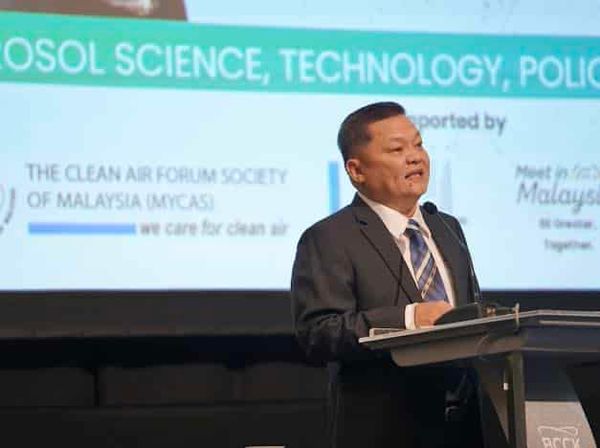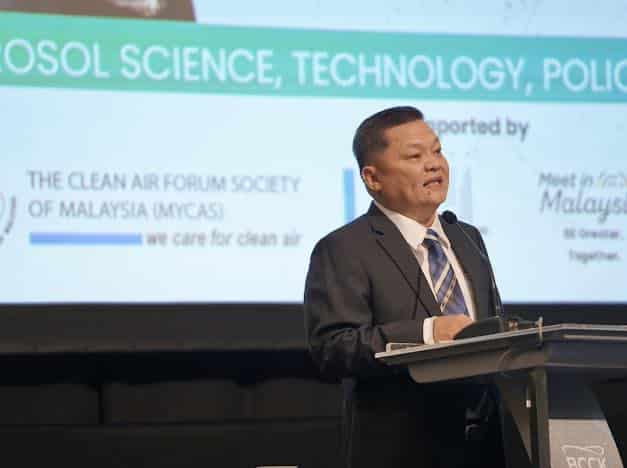PUTRAJAYA, Oct 4 — The government has agreed to allow the Ministry of Natural Resources and Environmental Sustainability (NRES) to sign the Kigali Implementation Plan (KIP) Malaysia Stage 1 Grant Agreement with the World Bank.
This will let Malaysia receive US$10.19 million from the Multilateral Fund for the Implementation of the Montreal Protocol, which is a financial mechanism set up to help developing countries comply with the protocol’s targets for phasing out ozone-depleting substances.
NRES Deputy Minister Datuk Seri Huang Tiong Sii said the funds will support a technology conversion project for three local companies to adopt environmentally friendly refrigerants, as well as aid the servicing and maintenance sector, capacity building, and enforcement efforts.
“This move reaffirms Malaysia’s commitment to implementing the Montreal Protocol,” he said during the World Ozone Day celebration here today.
Huang acknowledged that fulfilling these commitments presents various challenges. Nevertheless, the government remains dedicated to adopting new technologies and implementing effective strategies to enhance skills and raise public awareness, ensuring its environmental protection goals are met.
He expressed confidence in Malaysia’s ability to overcome these challenges, citing the country’s proven track record through the ongoing Hydrochlorofluorocarbon (HCFC) Phase-out Management Plan and KIP Malaysia, among others, which will keep the nation on the right path towards environmental sustainability.
This year’s World Ozone Day, themed “From Science to Global Action”, highlights the critical role of science and evidence under the Vienna Convention, Montreal Protocol, and Kigali Amendment, all of which promote global cooperation to restore the ozone layer and address climate change.
In a move to strengthen the sustainable implementation of Lifecycle Refrigerant Management (LRM), Huang presented certificates of recognition to seven Refrigerant Recovery Centres in Malaysia, which help prevent the release of substances controlled by the Montreal Protocol, extend refrigerant lifespan, and support a circular economy.
The LRM model not only helps reduce the emission of ozone-depleting substances and greenhouse gases but also lowers industry costs by reducing reliance on new materials and creates green jobs in refrigerant maintenance and reclamation.
The two-day event, which began today at Alamanda Shopping Centre, features various interactive activities, such as a colouring competition, pocket talks, an environmental quiz, demonstrations by Petrosains, and exhibition booths from strategic industry partners.
Meanwhile, Environment Department (DOE) director-general Datuk Wan Abdul Latiff Wan Jaffar said World Ozone Day aims to raise public awareness on the importance of protecting the ozone layer and mitigating global warming.
He added that the event also strengthens government, industry, and community collaboration in implementing the Montreal Protocol, in line with Malaysia’s commitment to environmental sustainability.
“The DOE will continue to ensure all policies, plans, and strategies for the phase-out of HCFCs and the reduction of CFCs are implemented with the cooperation of all relevant stakeholders.
“We will consistently review existing legislation to ensure it keeps pace with the latest technological developments in the refrigerant sector,” he said.
Wan Latiff emphasised that enhanced enforcement of refrigerant controls is also crucial to ensure Malaysia’s ongoing compliance with all its obligations under the Montreal Protocol.
The Montreal Protocol, signed in 1987, is an international environmental agreement designed to protect the ozone layer by controlling the production and consumption of ozone-depleting substances like CFCs and HCFCs.
Malaysia has been a party to the protocol since 1989, an enduring commitment that has positioned it as an active supporter of global efforts to conserve the ozone layer and mitigate climate change.




